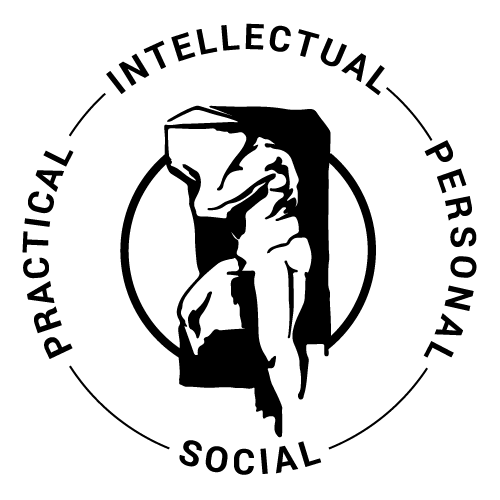On Friday, March 13, Great Connections founder president Marsha Familaro Enright spoke to business people and students about the unrecognized Ethic of Trade and the good that this ethic brings to the world.
Ms. Enright spoke about the deep good that business people create through their ethic of trade and yet, how little moral credit they get for it. She outlined key economic and ethical misconceptions that drive resentment towards business, wealth, and capitalism.
This talk was part of a new initiative of the Fundacion Para Responsibilidad Intellectual (FRI). The initiative has two parts: 1. To educate business people in Latin America about the ideas that shape culture and governments, and 2. To help those in business work to move their cultures and governments in the direction of reason, individualism, and freedom.
Here are some of the highlights of the talk:
“Do the following values and virtues support human life?
- Creativity
- Hard work
- Self reliance
- Predicting the future and taking rational risks
- Treating others with respect, as equals
- Offering value to others
- Interacting with others through persuasion, not force
These are essential virtues and characteristics needed by the business person to succeed. This is the Ethic of Trade. Through these virtues, business creates and produces wealth which elevates human life around the world.
Yet, for the most part, this ethic is not recognized as a morality, as an ideal, because when people live by it, each pursues his or her own self-interest. And according to the philosophy and ethics of many people, pursuing self-interest is, at most, necessary to stay alive, but not a pursuit of the good. Instead, the ethic of self-denial, of living only to serve others, is predominantly considered the highest morality.
However, in reality, the enlightened pursuit of self-interest is the cause of the most improvements in the world. Businesses and capitalism have created the conditions which have elevated the standard of living of most of the world.
All we need do is look at which places in the world flourish and which stagnate. South Korea versus North Korea; East and West Germany; Hong Kong versus Communist China. All are stark demonstrations of the destruction wrought by the collectivist pursuit of self-denial versus the flourishing created by the individualist pursuit of self-interest.
This error about self-interest needs to be recognized and corrected in our cultures. Ethical business people deserve honor and respect for what they create and honestly earn, rather than resentment and envy.

Fiat Argentina CEO Cristiano Rattazzi hosted the talk.
Resentment against capitalism is strong in Latin America. And there is at least one valid cause of that resentment: special favors from the government extended to some, usually wealthy, established businesses. These favors make it difficult for new businesses to start, creating a growing gap between the haves and have-nots.
To the extent business people rely on special favors to acquire money, they are not living by the Ethic of Trade; they are not using persuasion alone to sell their goods, they are relying on the force of the government to keep out the competition.
To fully achieve the honor they deserve, business people should advocate free trade and a repeal of special favors, so that everyone has an equal opportunity to create and produce.
Then, instead of resentment towards wealth, more people would admire successful business people and develop the ambition to be like them.
Argentina was a thriving nation at one time; its economy was the tenth largest in the world in 1913. And, despite almost a century of fascism and populist governments, there is obvious wealth in the country today. A visitor can see the evidence in its architecture, infrastructure, vast numbers of polo clubs, large array of leather, jewelry, and furs for sale, and energetic people. Buenos Aires has huge and varied bookstores and an ongoing intellectual culture. Argentina has produced some of the great classical musicians and opera stars, including Daniel Barenboim and Marta Argerich. Its Teatre Colon is ranked the third best opera house in the world by National Geographic.
Yet, it has suffered tremendously as a result of destructive collectivist ideas and governmental policies. Recognizing the value and worthiness of its capitalistic enterprises is one step to restoring its former glory.”
This talk was hosted by Fiat Argentina CEO Cristiano Rattazzi in the top floor conference room of Fiat’s building in Buenos Aires. The complete presentation will be published in the near future.



